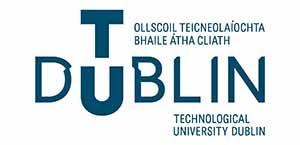By: Dr. Mohamad Saleh (BSc. , M.Eng, PhD, CEng , MIET)
School of Informatics and Engineering, ITB
Engineering can be defined as a balance of scientific, analytical and technical skills which enable engineers to provide the optimal solutions for the simple, as well as, complicated real world engineering problems. Typically the course leading to the eng ineering degree, at tertiary education, is based on an approved course schedule containing all the relevant topics which will be delivered by educators in a series of lectures throughout the course. As a profession, Engineering involves management of resource including people, money, machines, systems and energy. Simply Engineering is an area for the creativity, innovation, empowerment, and brain power for useful applications in a society. Thus, it can be true to say that level of genuine engineering involvement in a society gives a significant measure of the healthy economy.
Historically speaking, global societies have developed through agricultural, industrial and the information/ communication Technology phases. Through these phases, there have been major turning points in engineering education. In early times engineering started as a craft, a job for skilled people. At that time, training was achieved though some forms of apprenticeship. Prior to the World War II and around the Industrial Revolution, mass production and mechanization were invented and then engineering education was to develop and apply ideas that were already in existence. Thus, engineering education was delivered in applied fashion.
After World War II , 3rd level Curricula in Engineering became much more scientific and mathematical, and Engineering Education was delivered in an innovative fashion to cater for the development in new technology (i.e Micro Chip and computer technology). At present, the world witnessing a phase of information/ communication technology where brain power machines, smart devices and products are widely available in the global market. Consequently, engineering education is set out to be delivered in an integral or multidisciplinary form and hence, new disciplines in engineering have been well established at higher engineering educational institutions (e.g. Mechatronics, Biomechanics, Chemical Engineering, Micro and Nano Engineering etc.).With this in mind, it has been reported that each of the following can shape the role that engineering will play in the future:
Historically speaking, global societies have developed through agricultural, industrial and the information/ communication Technology phases. Through these phases, there have been major turning points in engineering education. In early times engineering started as a craft, a job for skilled people. At that time, training was achieved though some forms of apprenticeship. Prior to the World War II and around the Industrial Revolution, mass production and mechanization were invented and then engineering education was to develop and apply ideas that were already in existence. Thus, engineering education was delivered in applied fashion.
After World War II , 3rd level Curricula in Engineering became much more scientific and mathematical, and Engineering Education was delivered in an innovative fashion to cater for the development in new technology (i.e Micro Chip and computer technology). At present, the world witnessing a phase of information/ communication technology where brain power machines, smart devices and products are widely available in the global market. Consequently, engineering education is set out to be delivered in an integral or multidisciplinary form and hence, new disciplines in engineering have been well established at higher engineering educational institutions (e.g. Mechatronics, Biomechanics, Chemical Engineering, Micro and Nano Engineering etc.).With this in mind, it has been reported that each of the following can shape the role that engineering will play in the future:
- The next scientific revolution.
- Biotechnological developments in a societal context.
- Interruptions in the technology cycle as a result of developments in the natural world.
- Nanotechnology, natural science, photonics, information/communication technology and logistics.
- Global conflict or globalization.
Overall, engineering is a privileged profession and engineering mind set is the way to a bright future for any nation. So, let’s “engineer” our way to a successful future.

No comments:
Post a Comment